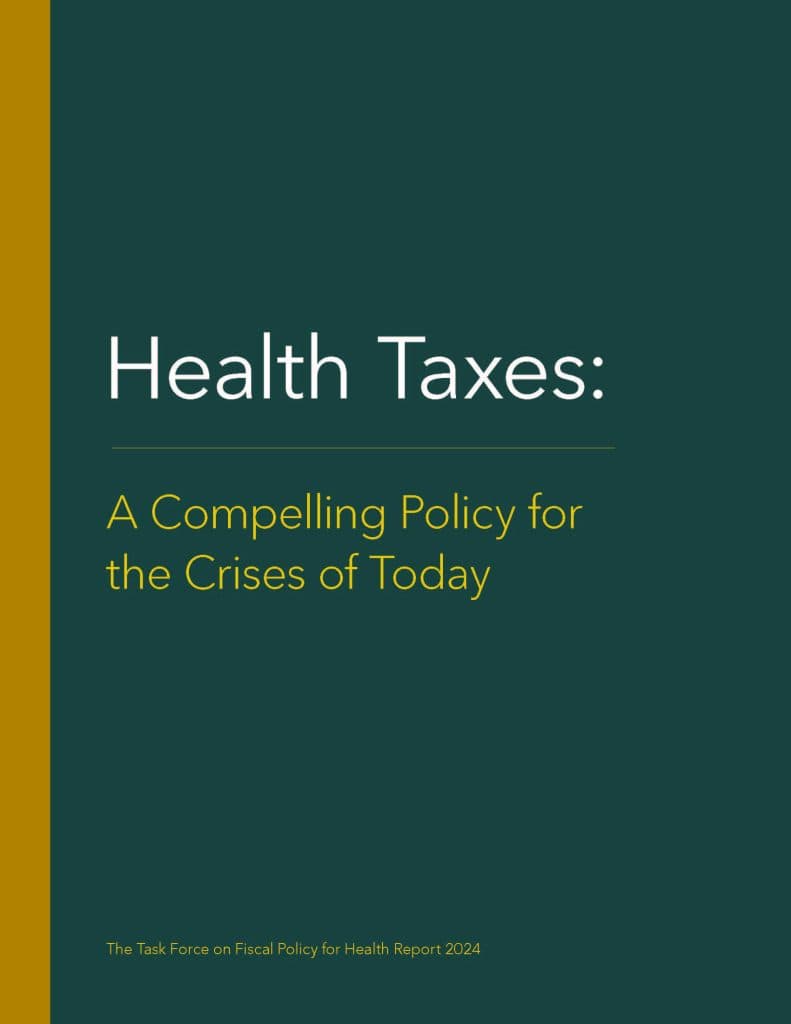Fiscal Policies on Harmful Products Could Avert 50 Million Premature Deaths by 2050, Task Force Reports

Global health leaders are advocating for increased taxation on products detrimental to health, projecting that such fiscal policies could prevent 50 million premature deaths by 2050 and generate substantial revenue for public health initiatives. This call to action comes as noncommunicable diseases (NCDs) continue to be the leading cause of death worldwide, driven by risk factors such as tobacco use, obesity, and alcohol consumption. Mike Bloomberg, co-chair of the Task Force on Fiscal Policy for Health, highlighted the effectiveness of these measures.
The Task Force on Fiscal Policy for Health, co-chaired by Mike Bloomberg, Prime Minister of Barbados Mia Amor Mottley, and economist Larry Summers, convened to address the escalating global burden of NCDs. In a recent statement, Bloomberg emphasized, > "Taxing products harmful to our health has proven to be a highly effective way to reduce death and disease, while also raising revenue that governments can use to improve public health." This initiative seeks to leverage fiscal tools to improve health outcomes and bolster national treasuries.
Noncommunicable diseases, including cardiovascular diseases, cancers, chronic respiratory diseases, and diabetes, are responsible for over 75% of global deaths, claiming more than 40 million lives annually. A significant 77% of these deaths occur in low- and middle-income countries, placing immense strain on healthcare systems and impeding development. The World Health Organization (WHO) has identified tobacco use, unhealthy diets, and harmful alcohol consumption as primary behavioral risk factors.
A 2019 report by the Task Force concluded that health taxes are a highly effective yet underutilized policy tool. It projected that a 50% increase in excise taxes on tobacco, alcohol, and sugary beverages could avert over 50 million premature deaths globally over the next five decades and raise more than US $20 trillion in additional revenues. Despite these findings, progress in implementing such taxes has stagnated in many countries, even as healthcare systems face significant financial stress.
The WHO's "3x35 initiative" further supports this approach, aiming to increase the price of tobacco, alcohol, and sugary drinks by 50% by 2035. This measure is anticipated to generate $1 trillion by 2035, providing crucial funding for health systems, particularly in low-income countries grappling with reduced development aid. Evidence from countries like Mexico and South Africa demonstrates that such taxes can lead to significant reductions in consumption of targeted products and encourage product reformulation.
Industry representatives, however, have voiced opposition, questioning the effectiveness of these taxes in improving health outcomes. Kate Loatman, executive director of the International Council of Beverages Associations, stated, "It’s deeply concerning that the WHO continues to disregard over a decade of clear evidence showing that taxing sugar-sweetened beverages has never improved health outcomes or reduced obesity in any country." Despite this pushback, the initiative has garnered support from Bloomberg Philanthropies, the World Bank, and the OECD, which are ready to assist countries in adopting these fiscal measures.